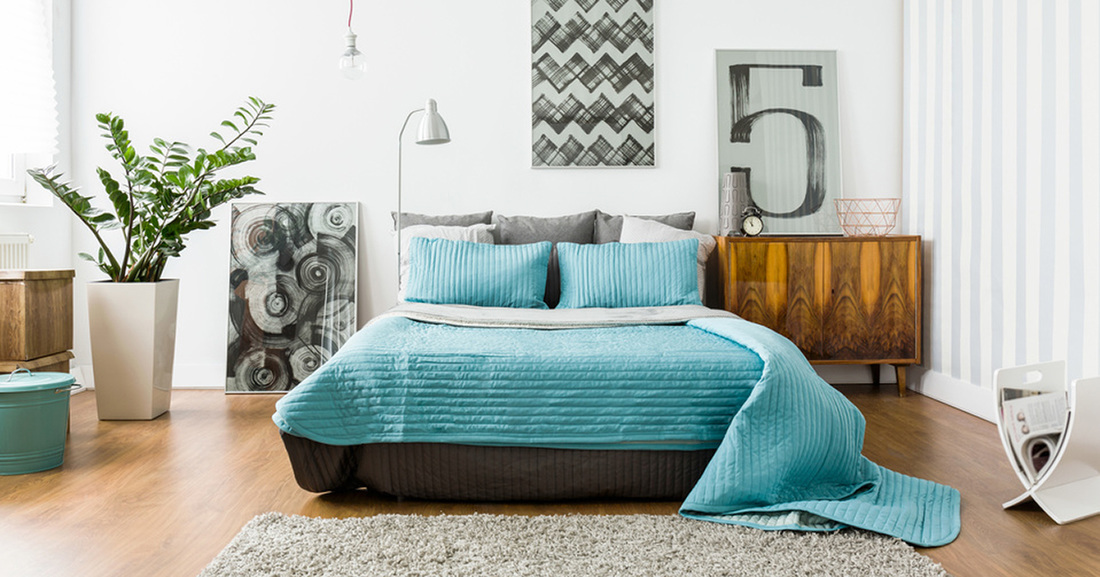Make Your Bed
Becoming organized takes lots of time and practice, but according to one expert, it starts with a simple act, each and every day.
- story by Christina Richardson, PhD.
If you are disorganized you are neither a failure nor lazy. That is what Melissa told me when I moaned and groaned about my repeated efforts to deal with my stuff. “Your issue,” she said, “is that you have difficulty setting boundaries.”
For me that means hanging onto things I spent too much money on, and that I no longer wear, use, or like. I have most of my college textbooks. Why? Don’t know. A banjo I was going to learn to play. Enough dishes, glasses, and silverware to serve 50 people. Is being disorganized a wellness issue? I think so. My stuff feels like extra baggage, dragging me down. It affects me emotionally by just being there. The inability to locate the things I need (that are in there somewhere) is frustrating. Melissa told me to find the things that are really important to me and to give them places of importance. Get rid of the rest. She also said to get rid of the things that are reminders of things I am never going to do. Getting organized is about managing expectations. For Melissa the first step with a client is an initial evaluation, followed by a plan they work on together for how to move forward. Most clients are with her for about a year. It takes that long to create lasting change. We are not taught how to manage our homes and our personal spaces. Some people are naturally good at organization, while the rest of us need a little assistance.
Every client must first promise to make his bed. She made it very clear that this was a deal breaker if not adhered to.
I thought this was an odd demand, so I did a little search and found this video of Navy Admiral William McRaven telling graduates of the University of Texas, Austin why making your bed is the best way to start each day. Getting organized does not require military precision but it does require consistency.
Some of the basics to getting organized are to start with the spaces most used, like kitchens, bathrooms and home offices. Everything has to have its own space and its own system. Investing in the tools you need, as simple as a paper clip holder, and not covering every horizontal surface. Tackling one area and then living with it for a while will show what works and what needs to be tweaked.
Learned behaviors are their own reward when they work. Old habits are overlaid with new ones, resulting in efficiency and convenience. Tips for decreasing clutter abound on the Internet; WebMD has a list that includes finding a place for everything, saying no to unneeded items before they come into the house, finding clutter hot spots, eliminating items rather than purchasing containers, dumping duplicates, getting rid of nostalgia items, and weeding your wardrobe. It is important to remember that de-cluttering and organizing takes time, so it may help to ask a professional or a friend for assistance. Be patient and start in an area where you spend a lot of time. Instant gratification is a great motivator. Your home should be a sanctuary where you feel safe, protected and at peace. I am going to start with closets and enlist friends to evaluate my clothes with me, tossing worn out items and giving away what I no longer wear. Once that is done I'll move on to the kitchen, and on from there. I am giving myself permission to work at my own pace, and to make my bed every single morning. Comments are closed.
|
Categories
All
Archives
July 2024
|
Shoofly Magazine Partners
Our Shoofly Partners are local businesses and organizations who share our mission to enrich community life in Bay St. Louis, Waveland, Diamondhead and Pass Christian. These are limited in number to maximize visibility. Email us now to become a Shoofly Partner!




























 RSS Feed
RSS Feed























